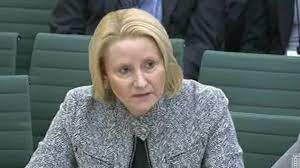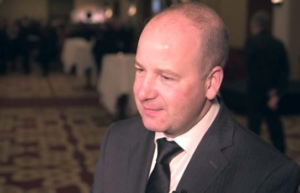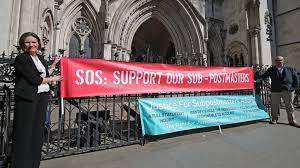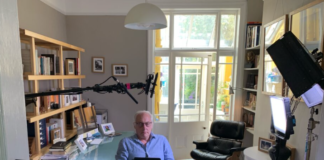- Torode to nowhere part one - 18th July 2025
- Cooking up trouble - 17th July 2025
- Numberless - 16th July 2025
![]() Revelations that the Post Office (PO) spent more than £90 million fighting wrongly-accused sub-postmasters despite possibly knowing its own defence was untrue, again shines the spotlight on the enormous Welsh dimension to the scandal.
Revelations that the Post Office (PO) spent more than £90 million fighting wrongly-accused sub-postmasters despite possibly knowing its own defence was untrue, again shines the spotlight on the enormous Welsh dimension to the scandal.

The disclosures are made in a draft report which the PO declined to comment on, as they will feature in a public inquiry into the huge controversy which re-starts this month.
Hundreds of people who owned and operated sub post offices were wrongly investigated, prosecuted and convicted between 1999 and 2015 because of bugs in a computer system (or unauthorised access by individuals), and it is widely considered one of the gravest miscarriages of justice in British history.

One former sub-postmistress, Seema Misra, spent four months in jail, before she was completely exonerated. She was one of more than 700 people who were falsely accused of stealing money, with 165 going to prison, and it has been blamed for causing at least four suicides.
A campaign in support of all the innocent people, and highlighting the role of senior executives was led by a former postmaster from Wales (although born in Liverpool), and a four-part drama about the terrible events on ITV highlighted them (it can still be seen on catch-up), with much of the filming in North Wales. The series was called ‘Mr. Bates vs The Post Office‘, and the former postmaster was played by star actor Toby Jones.

The drama followed the story of Alan Bates, who along with his wife Suzanne Sercombe, used life savings in 1998 to buy a PO branch in Llandudno.
Mr Bates refused to accept liability like many other sub-postmasters and sub-postmistresses, yet officials terminated their contract with just three months’ notice. It meant the couple lost the £65,000 they had invested.
A media outlet publicising the show, reported how the PO have said that they are sorry, and declared: “We sincerely apologise to victims for the devastating impact of the Post Office Horizon IT scandal on the lives of so many”.


A key player at the PO then was Angela van den Bogerd. She too featured in the broadcast and, along with the head of the organisation, Paula Venells (who was stripped of her honour), was described as part of “the gruesome twosome!”.
Ms van den Bogerd was named afterwards as ‘Head of People’ at the Football Association of Wales (FAW).

Her arrival led to the abrupt departure of the organisation’s contentious chief at the time, Jonathan Ford, who left losing a vote of no-confidence, following an astonishing civil war inside the organisation, which has never been fully explained by the mainstream media.
Ms van den Bogerd’s appointment came despite the fact that she had been found by a judge earlier to have “obfuscated” and “misled” a court, and she is shown in the drama in tears as she reads the judgement.

Ms van den Bogerd was an integral part of the PO’s complaints and mediation scheme, and in 2015 she appeared before MPs at a parliamentary select committee inquiry into the Horizon computer system at the centre of it all (which played a part in the show too). She has also co-authored at least one internal PO report on its relationship between sub-postmasters and mistresses, and that system, while in 2018 she was made ‘Business Improvement Director’. Ms van den Bogerd has now departed the FAW as well.
The Eye’s disclosure of crucial facts like these, came amid news that one sub-postmaster who lived between Swansea and Merthyr Tydfil explained how he (along with others) had tried to take his own life, while another Welshman talked about his marriage going on the rocks.

Mark Kelly, who ran the Brondeg Post Office, from 2003 until 2006, has like others described publicly the terrible impact on him, of the wrongful accusation from the PO that he had stolen money. He said that it had “made me feel guilty and depressed, over the years, I started then to blame myself and I tried to end my life a few times”.
But Mr Kelly is not alone in having these suicidal thoughts because of the incorrect allegations.

Another former PO worker, Jennifer O’Dell, said she had also considered killing herself and suffered from recurring night terrors.
She had been wrongly accused of stealing almost £10,000 from a post office in Cambridgeshire.
Speaking at the end of the first week of the inquiry into what happened, Ms O’Dell said she had researched how to take her own life, and suffered from depression and Post-Traumatic Stress Disorder (PTSD).


The inquiry (led by retired Welsh judge Sir Wyn Williams) was to hear evidence about the design of the defective computer system which made the mistakes (or allowed the unauthorised access), as well as the failings in the investigation.
The system’s aim was to replace paper in the network of 17,000 branches – however soon after it was rolled out, shortfalls began to appear, often of several thousand pounds. Problems meant it looked like money was missing from branches when it wasn’t.
Horizon was supplied by the giant Japanese company Fujitsu, but in all there were 736 unsafe convictions for theft, fraud and false accounting. Ms Vennells, who was Chief Executive Officer (CEO) of the PO from 2012 to 2019, has put the blame squarely on Fujitsu. Mr Bates is depicted in the broadcast finding it depressing as he reads a report that she had been given the honour originally for her “services to the Post Office”.

Mr Kelly, who was one of those accused between 2000 and 2014, said: “I can’t really socialise as much as I used to and I can’t actually manage some tasks – I can’t handle stress”.
He has described how he went to senior managers at the organisation, believing he had worked out how the errors were happening, but he said the company “didn’t want to know” and wanted to “bury it”.
He eventually resigned, losing the business and then his house, and it meant he and his wife decided not to start a family. He proclaimed: “We originally hoped to keep the office going and we would start a family – it was a four-bedroom house. But after the breakdown, we lost the house from it all, we thought we couldn’t have a family ’cause we had no house and no stability”. Mr Kelly, who now runs a mobile phone repair and accessory shop in Neath Market, hopes his story will“help everyone”.

A further victim of the PO’s tactics, Tim Brentnall, from Roch in Pembrokeshire, said the scandal led to the breakdown of his marriage because of “trust issues”, and he was prosecuted in 2010 after a £22,000 ‘shortfall’ was discovered at his branch, but his conviction was overturned.
Mr Brentnall has told how his sister, who ran a local hotel at the time, was also affected because “people tarred her with the same brush”. And he said in the years that followed his conviction, there was a “whispering campaign”, in the community with people calling him a “thief” and a “fraudster”.

Following the overturning of his convictions, he is now working in the Roch shop again, but said the business would never recover financially with its turnover down from £500,000 to £100,000.
In addition to apologising, the PO stated: “In addressing the past, our first priority is that full, fair and final compensation is provided and we are making good progress”.
It appears that the “good progress” may in the past have included pursuing those wrongly-accused sub-postmasters and mistresses, even though executives may have known that their defence was untrue, and spending tens of millions of pounds in taxpayers’ money to do it…

The memories of our Editor, Welshman Phil Parry’s, remarkable decades long award-winning career in journalism as he was gripped by the incurable neurological disabling condition Hereditary Spastic Paraplegia (HSP), have been released in a major book (including looking behind the headlines of important events) ‘A GOOD STORY’. Order the book now!
Regrettably publication of another book, however, was refused, because it was to have included names.
Tomorrow – how some of the corrupt officials exposed by Phil, didn’t even allow people who worked for them correct amounts of sleep, and now more research shows just how dangerous this might be.








